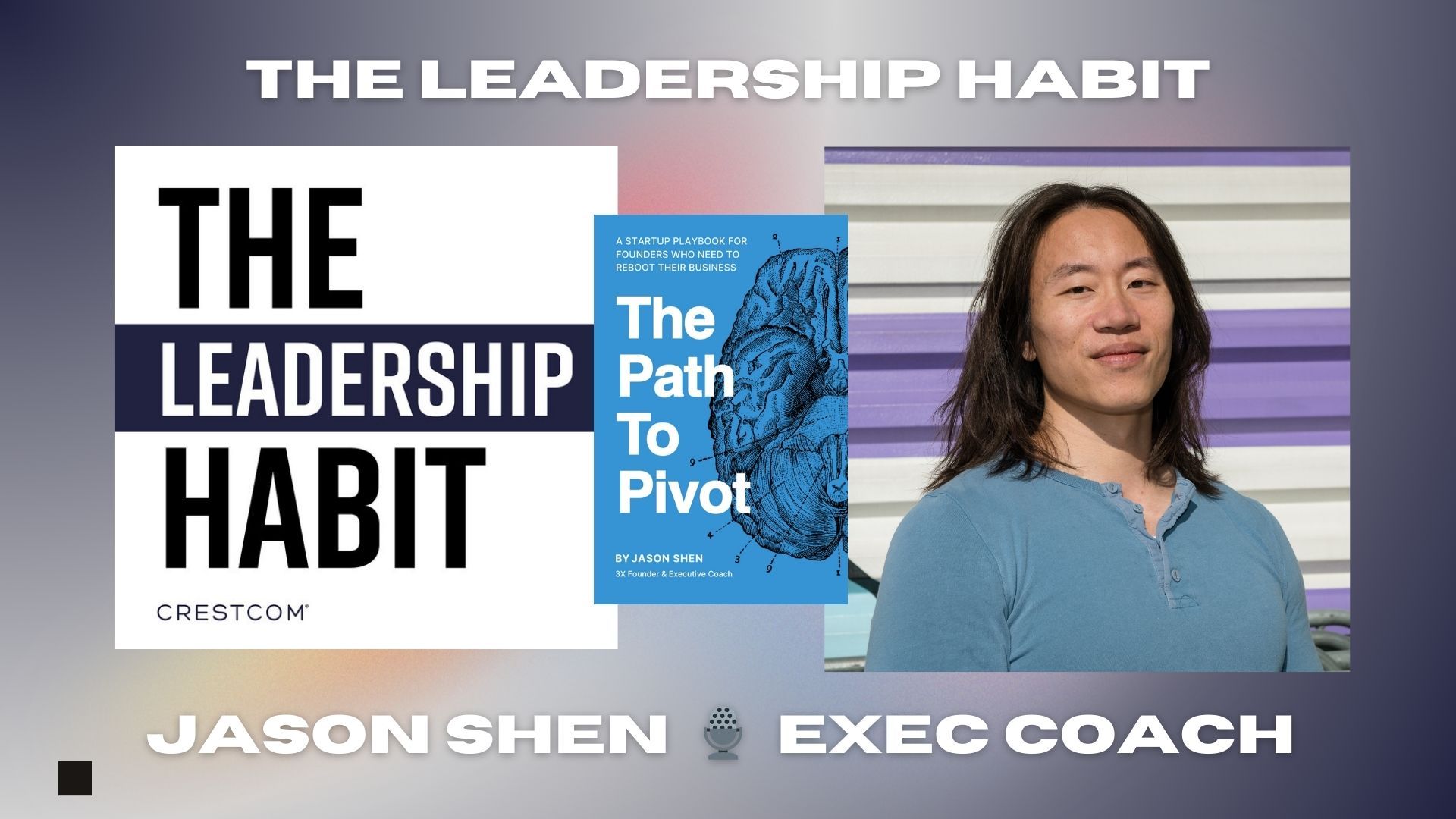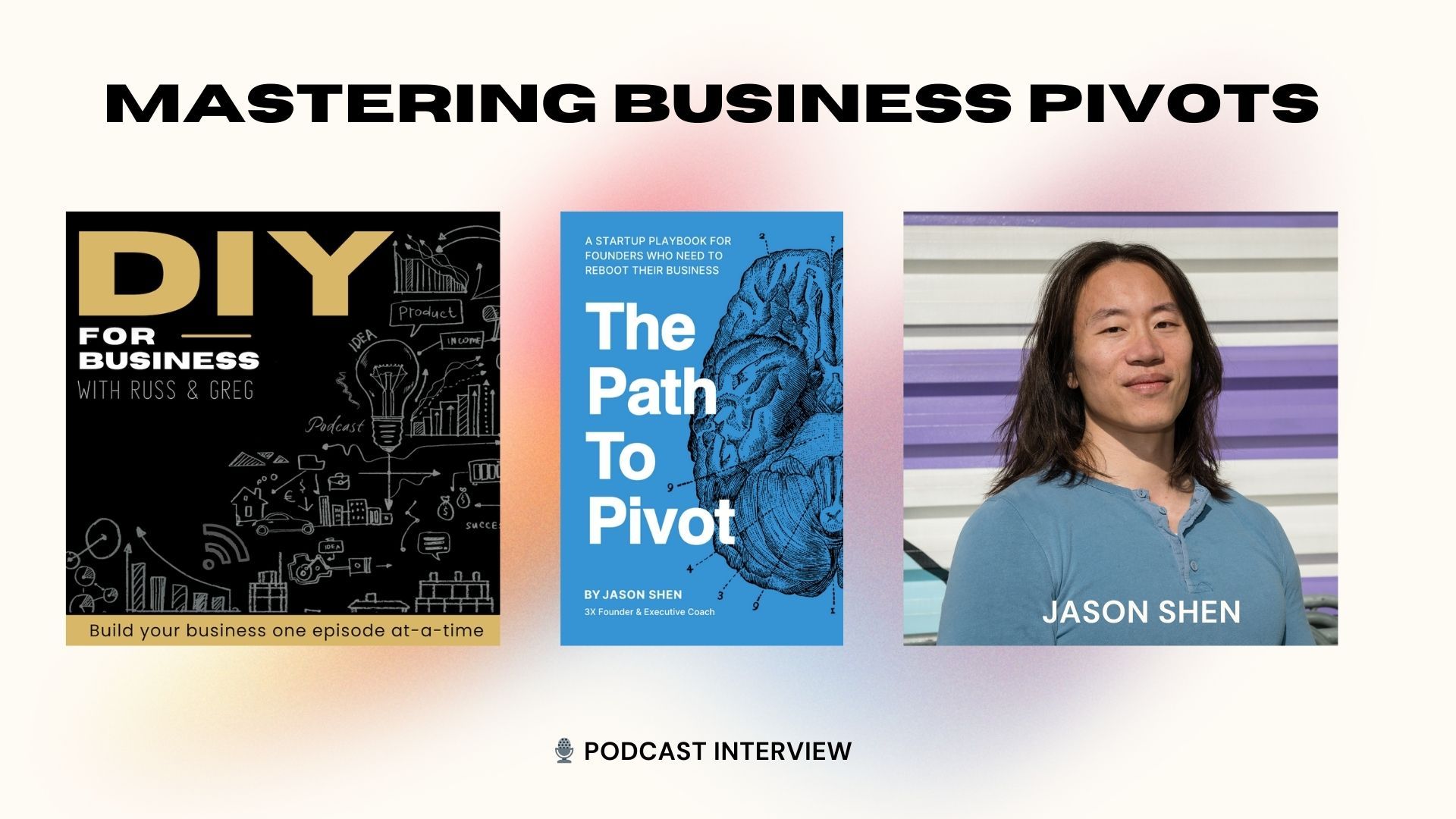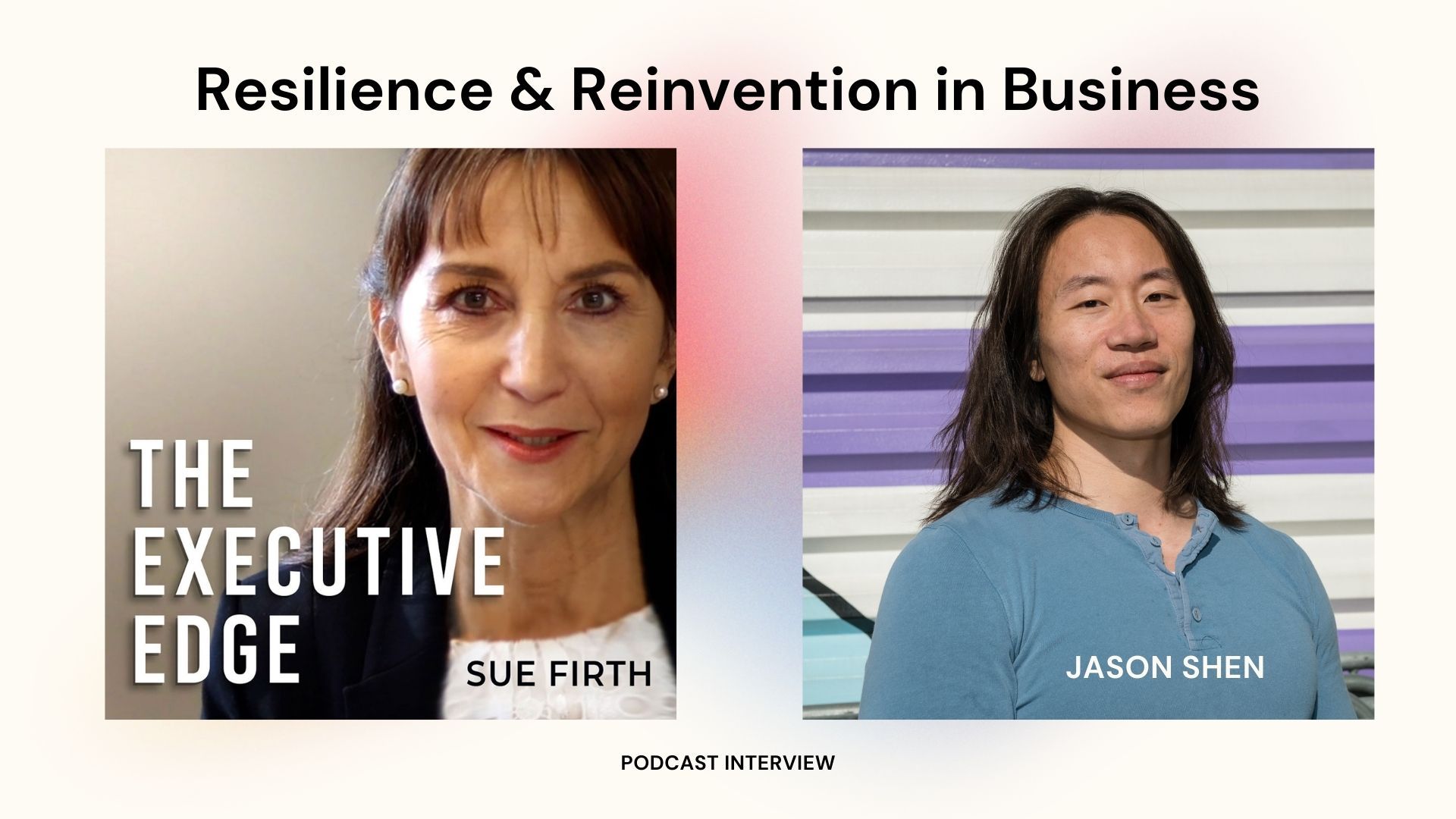iykyk is a young person acronym for "if you know, you know". But here's the thing. We rarely do know. Communication is harder than it seems even when you're trying at it.
Yet it's essential for leading with resilience. So here are some stories about how we get it wrong (starting with yours truly) and how we get it right.
--
"So we have a few minutes left, is there anything else on your mind?"
I had just spent 45 minutes going over the slides my client had drafted on how students at his alma mater's entrepreneurship club should think about generative AI.
My client—a cofounder of a AI-powered brainstorming tool—seemed genuinely appreciative of my feedback as it was the first time they'd be giving this presentation. I felt good, like I had added value as a coach. Then my client answered my question.
"Hmm. Oh, actually a couple of things did hit the fan this week."
Narrator: It was in this moment he knew...he f*cked up.
It turned out a number of other important events had recently occurred that had far more significance on the future of their company. And so after spending 75% of our allotted time on a P2, we spent the last 25% on the P0.
My client and I experienced a failure in communication. I not adequately looked for the story behind the story. And my client had not adequately signaled there were other things to discuss.
Communication is hard. Even between two parties that collaborate often, trust one another, and share similar communication norms It's even worse when one or more of these facets are off.
To act with resilience, you need to know what's happening. And you need to describe your situation clearly, coordinate with your team carefully, and request out help compellingly. All of this requires better communication.
Poor Communication: Destroyer of Timelines and Livers
I've been avoiding TikTok for a while as being too much of a time-suck but recently returned to it and was pleased to find some new faces and voices, including @oldcoderguy, a grey haired tech veteran, who has a wise and wisecracking way of articulating his ideas. But in one recent video he tells us:
One the best kept secrets in project execution is that the root cause of most delays and failures is not the complicated stuff. The primary destroyer of timelines and eventually your liver is just basic sh*tty communication.
He goes on to describe a common scenario: a technical employee who sees a problem but doesn't bring it up in team meetings because they're not sure it's the appropriate time. And a manager who doesn't probe on details or create an environment where seemingly "dumb" questions are welcomed.
As you can imagine, the problem eventually rears its ugly head late in the game and wreaks havoc on the project delivery date. A sad result that could have been avoided had the issue been addressed earlier on.
As a leader or senior member of a team, you avoid avoid this particular failure mode by cultivating a psychologically safe space. That means responding earnestly when someone asks a question, staying nonreactive when someone offers a critique or concern about a work issue, even if might have negative implications on your own performance.
If this sounds obvious and easy, it's neither. Google undertook an exhaustive multi-year study of high-performing teams before they .
Everyone thinks leaders have thin skin till they're on the receiving end of people's complaints. It's one of the reasons why great leaders need to develop healthy coping mechanisms often learned in at the therapists office or through executive coaching (tiny plug!)
What if you're someone in a more junior or non-managerial role? Besides simply asking more questions, Old Coder Guy recommends:
- Saying what you think is true (assumptions, expectations, decisions) out-loud and asking people to tell you how you're wrong
- Putting things into a picture or diagram
- Get other people to explain what the f*ck they think is happening
These recommendations aren't easy either. They require courage. Lower ranking individuals face a greater risk of punishment or retribution by the damaged egos of the higher ups.
All of this is about getting people to aligned to a shared reality. Words are slippery and can be misheard (when delivered verbally) or misinterpreted. Writing things down helps with the former while while restating and confirming helps with the latter.
The Power of the Pen
Writing is in fact one of the most profound technologies human beings have, and yet it is still commonly underutilized in many work environments. [1]
I was catching up with an old friend about her job—she is a New Yorker and a former journalist whose now working in a very different cultural environment. She was frustrated that in many of the teams she worked with, people would have important meetings over a phone or video call, yet rarely did anyone capture or circulate meeting notes after the fact, making it hard to coordinate on decisions or next steps.
This would never happen at Meta.
Every meeting was expected to have at minimum a written agenda and almost always follow up notes and action items were added to a document, and often posted in in public channels where non participants could see what was discussed and what decisions were made.
As a PM, it was often my job to make sure that this documentation was captured and shared, but everyone, from engineers to designers and beyond were expected do this for meetings that they held.
Writing! It's like magic we laughed.
When In Bangkok...
And yet my friend's frustrations are not an isolated case. Here in Thailand, my home away from home for the last month, people practice similar communication norms.
My wife has been similarly run into issues where issues and concerns are not captured and later re-emerge anew as if never previously discussed. "This is news to me" someone might utter. And without evidence, it becomes impossible to prove they had prior knowledge of the issue.
Yet, this isn't merely an example of obvious incompetence. It turns out, Thailand is a high-context, indirect negative feedback and avoid confrontation culture. These are 3 of 7 cultural dimensions that former Peace Corps volunteer turned management author Erin Meyer describes in her research.
In a very recent Harvard Business Review article about feedback and diversity, Meyers tells the (very close to home) story of a oftspoken American based Silicon Valley collaborating with a team in Thailand.
After Jethro provided some carefully considered positive and constructive feedback over a video call and in writing, he got some feedback of his own, from the head of HR in Thailand.
“The American tendency to give feedback by explicitly stating ‘the area in need of improvement’ already feels aggressive to a Thai recipient,” she told Jethro. “To make things worse, Americans frequently end discussions by recapping key points in writing, which makes us feel that you don’t trust us to do as we say or are trying to get us in trouble.”
She explained that Jethro would have more success if instead of detailing what his Thai colleagues had done wrong, he praised what was good clearly and left out what was bad. If he was specific about the things that had worked well, he didn’t need to comment on the negative aspects at all; the Thai employees would understand that he was not happy with what he hadn’t mentioned.
The part of me that was drilled in the concept of "Extreme Clarity" is screaming at this very apparent (to me) lack of clarity. We're supposed to expect the other person to intuit what was wrong??
Yet, if this is in fact the cultural norm of this population, attempting to force a different way of working is not going to work, at least not without a lot of trust-building and mutual understanding. Which would in fact require adhering to the norms to achieve.
The Story Behind the Story
In the hilarious and provocatively insightful memoir Maybe You Should See Someone by Lori Gottlieb, the author, a therapist, describes her own journey with therapy after she's dumped by her longtime boyfriend.
Gotlieb describes what's known as "the presenting problem", what a medical doctor might call "the chief complaint". It's the reason they purport to be in need of assistance. In Gottlieb's case, it's her anger over how abruptly her boyfriend dropped her after a many years-long committed relationship.
Yet her own therapist, Wendell, refuses to stay on this initial level. He probes for the feelings underneath her rage at her now-ex. As she writes:
"Anger is the go-to feeling for most people because it’s outward-directed—angrily blaming others can feel deliciously sanctimonious. But often it’s only the tip of the iceberg, and if you look beneath the surface, you’ll glimpse submerged feelings you either weren’t aware of or didn’t want to show: fear, helplessness, envy, loneliness, insecurity.
And if you can tolerate these deeper feelings long enough to understand them and listen to what they’re telling you, you’ll not only manage your anger in more productive ways, you also won’t be so angry all the time.”
It turns out Gottlieb has been using the anger to hide a bunch of other things: the struggle to finish writing her latest book, a chronic illness, and the fear of aging and death.
Similarly as an executive coach, a client might have the "first order concern" that brings them to me. My client Kevin told me he wanted to advance as a marketing leader and for a few months we tried to work on that.
But it became clear that was just what his upbringing had taught him to want: to climb the ladder of external success. It took probing to uncover a powerful and more personal dream: to start his own marketing agency and have a more flexible schedule. And eventually we got him there, closing six figures of work in less than 6 months.
This exploration of someone's deeper desires is communication and understanding. To be clear, I am absolutely not suggesting that you turn your next meeting or 1:1 into a therapy or coaching session. But I am saying to recognize that so much of what's going on lies underneath the surface of the words we use.
"When someone shows you who they are, listen to them"
Actions and behaviors are a form of communication too. They are not always explicit, and can be misinterpreted even more easily than words, but they contain knowledge.
Miroo Kim and I ran a facilitation workshop a few weeks ago where we practiced the art of empathetic listening. Not just listening to the content, but the feelings and emotions underneath the content, and seeking to confirm our understanding as listeners to the speaker's experience.
I've done this exercise a number of times, but every time I do it again I am surprised by its power. To hear someone reflect back not just what they heard you say, but what they sensed you felt, is a profound thing.
And if this is a new practice for you, you'll find, like dressing better or getting a better webcam for your video calls, it will quietly yet tangibly improve your explicit communication.
Understanding and being understood by other humans is enormously hard. And yet our species is perhaps better at cross group communication than any other on the planet.
Here's to a more clear and collaborative tomorrow,
—Jason

PS - If you made it this far, here's a perfectly hilarious video demonstrating a "hog on hog collision", a failure to communicate on the baseball field
[1] Like all technologies, not everyone was a fan of writing. Our man Socrates felt that words weakened one's memory and mind. Can't imagine what he would have thought about ChatGPT.
Recent Issues



Recent Podcasts







